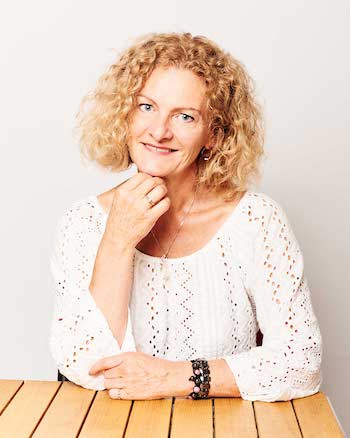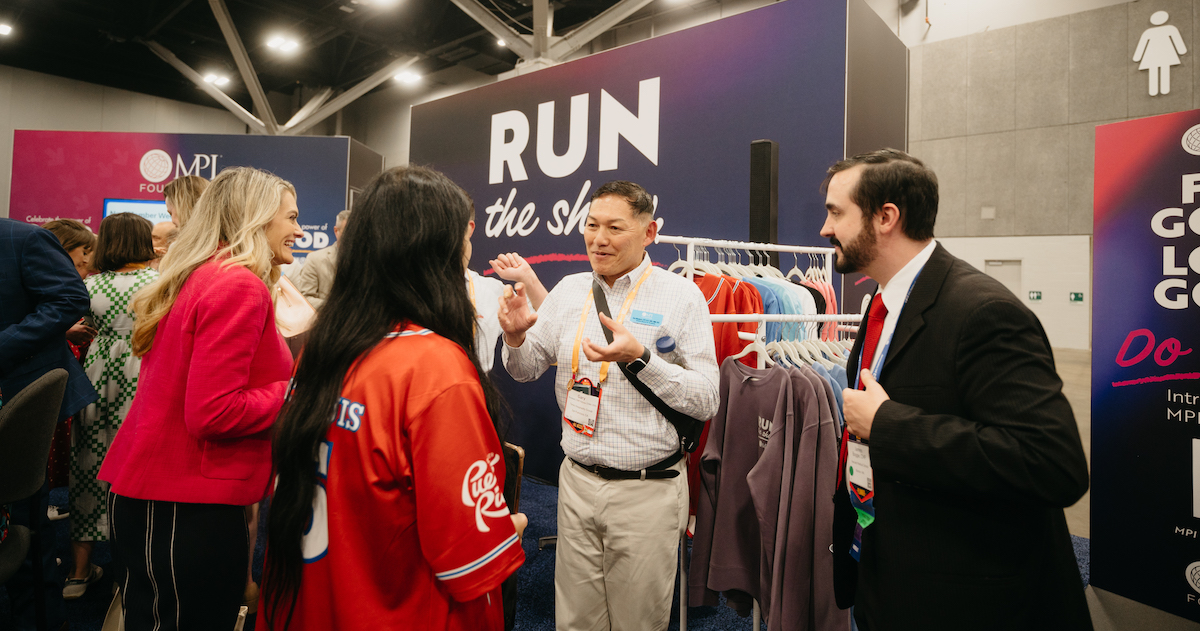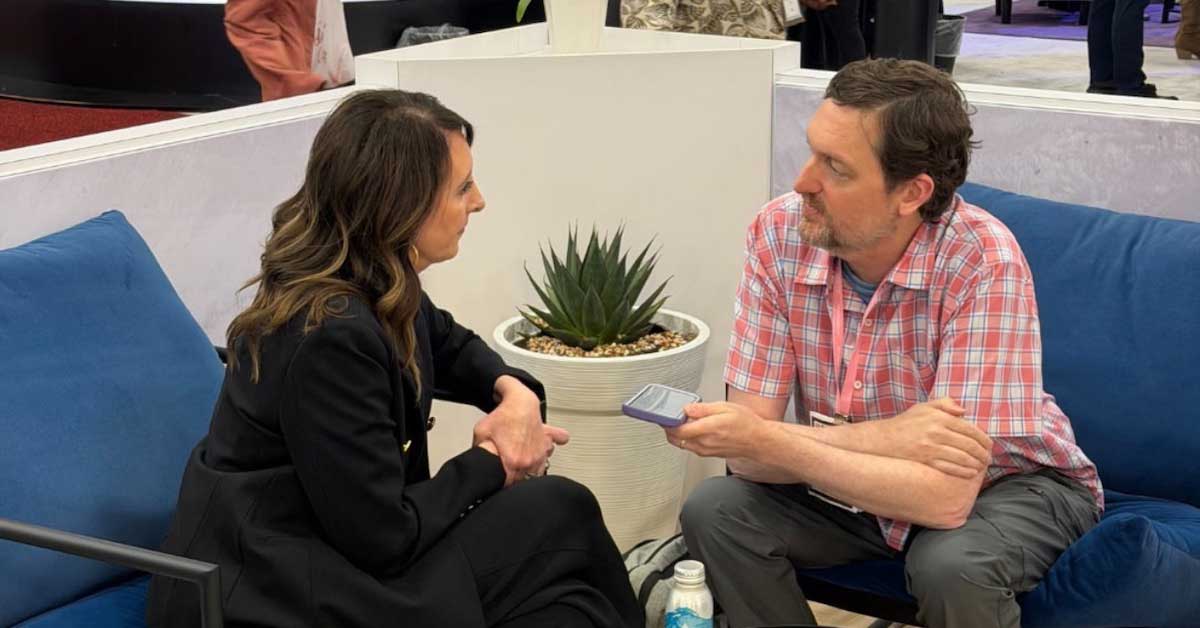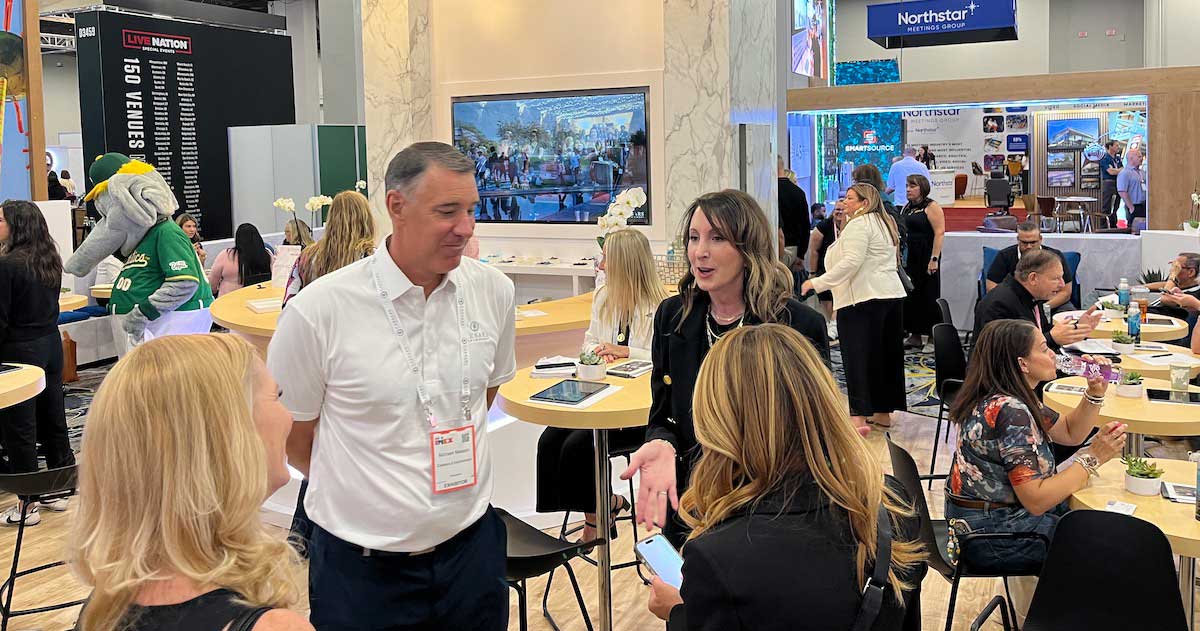Don't miss Kitt Watts' IMEX America session "The menopause matters at work, let's talk about why" Wednesday, Oct. 18.
Kit Watts believes it’s important for the meeting industry to talk about menopause.
“I feel particularly strongly that society is very fast to write women off as we get older, and our industry is so female dominated,” says Watts, communications strategist for the IMEX Group. “If our sector can’t embrace this conversation, who can?”
Watts started a menopause/perimenopause support group at the IMEX Group office and will bring the conversation to a much wider audience this year with a session at IMEX in Frankfurt, co-presented with David Crais, CEO at CMG Carealytics and a lifelong researcher. “Two Heartfelt Conversations About Midlife and the Menopause” will take place at 11 a.m. on 24 May in the Inspiration Hub (Campfire, Stand 9007, Hall 9). The session will include two conversations: the first a focus on women and their lived experience of working during menopause and the second a man’s eye view.
We spoke with Watts about why she started the support group, having open conversations and how we can all help each other.
Why did you decide to start the menopause/perimenopause support group at the IMEX office?
For a start, we’re a largely female company, which is not uncommon in the events industry. Eight years ago, when I was going through the peak of my own menopause, I made a decision not to feel ashamed about it. I was acutely aware that a large number of female colleagues were “coming up behind me,” both in career and menopause terms. It felt right—and real—to be more honest and vulnerable about what I was going through and I was lucky because IMEX has a great culture—it’s inclusive, robust and supportive. I felt safe enough to step out a little and model a new way of showing up to my colleagues. Plus, let’s be honest: It’s hideous trying to pretend it’s not happening! Such a pretence takes even more precious energy and mental bandwidth, and I just didn’t have it!
Leaning into it takes courage but, in everyday terms, it mostly meant sitting unapologetically by an open window or fanning myself without embarrassment, acknowledging when I was having a foggy-brained day and not trying to be a superwoman if I was feeling tired or discombobulated!
These things all sound simple. They’re not, especially when your whole career has been predicated on performing to a high standard, getting stuff done and generally being an empathic, reliable, consistent member of a strong, creative team. 
Learn much more about what to expect at IMEX in Frankfurt. The wide variety of Inspiration Hub topics includes resilience, crisis management, building sustainable business and much more.
How do menopause/perimenopause impact the lives of people in the meeting industry?
Let’s start by saying that unless you live in a bubble—and you can’t do that in the global events industry—then everyone is impacted in some measure by the menopause. It doesn’t have to be a first-hand experience for there to be consequences.
I think two big factors come into play when you’re travelling for work as we do: quality of sleep and jetlag. Of course they’re linked, but if you’ve been accustomed to pushing through and being able to rely on your mind and body to perform reasonably well on a different time zone, it can be shocking when they don’t.
Not only that, but menopause tends to hit at a time when women (and their partners if they have them) are raising teenagers and/or trying to care for ailing or elderly relatives. Away from home, these factors come into even sharper relief. Anxiety symptoms can rocket through the roof. And for those of us who’ve cared for parents or relatives with dementia, menopausal memory loss can trigger deep fears of long-term mental decline. I’ve heard this combination of factors called, not unreasonably, a perfect storm!
“Leaning into it takes courage but, in everyday terms, it mostly meant sitting unapologetically by an open window or fanning myself without embarrassment.”
Why was it important to you to bring this topic beyond the office and to IMEX show attendees?
Again, there are many factors at play, but I feel particularly strongly that society is very fast to write women off as we get older, and our industry is so female dominated. If our sector can’t embrace this conversation, who can? Look around you. How many older women do you know who’re truly embracing their greying hair, softer bellies and naturally ageing skin? How many are trying hard to hold back time with Botox, hair dye and boob jobs when the one given is that we’ll all die. It’s a given!
I look at it like this: Introverts, empaths, people with autism and the trans community, for example, have all stepped up in recent years to own their identities—why not peri and menopausal women? This isn’t a zero-sum game where our gain is somebody else’s loss.
But, even more important, we have a lifetime of wisdom that shouldn’t be written off. We’re deep wells of knowledge, life experience, skill, emotion and multi-tasking talent. That doesn’t end just because you hit your mid-40s, 50s or 60s. As Michelle Obama says, “Our 50s are a time when we can become everything we’ve been meaning to be.”
“A little understanding, open-mindedness and empathy go a long way.”
What’s a good way to support those going through this phase of life?
A little understanding, open-mindedness and empathy go a long way. A colleague kindly offered to swap desks with me the other day so I could sit next to the open window. That little moment of kindness was so powerful, and deeply appreciated. However, before anyone can offer help, as women we must speak up, and do so without shame or blame.
Companies are waking up to the need for more formal policy guidance, which is vital to ensure equity and transparency too. Flexible work patterns and working from home have been transformational for many office-based menopausal women. Equally, at IMEX we can all (men and women) access up to five days’ paid support leave per year—no questions asked. We’ve done a lot of work in recent years to be more open with each other about our life experiences and some of the challenges we’ve each lived through, or we’ve been forced to bring into the office by dint of being human. Whether it’s a team member with a chronic health condition or someone who’s just lost a friend to suicide, it helps no one if we push through and pretend it hasn’t happened and isn’t impacting the working day ahead of us.
The flipside of this is that you soon realise sharing really is caring. I believe the more human we can be with each other at work, the more connected and stronger the culture becomes. Alex Brueckmann, one of our speakers at IMEX Frankfurt this year, put me onto a TED Talk about a phenomenon called ‘Companionate Love.’ It perfectly describes the warmth, love and affection I feel for my colleagues and teammates. I think if all workplaces could leverage a little more companionate love, all of us, not just menopausal women, would feel safer, more comfortable and more able to give our best, whatever that looks like on any given day!







